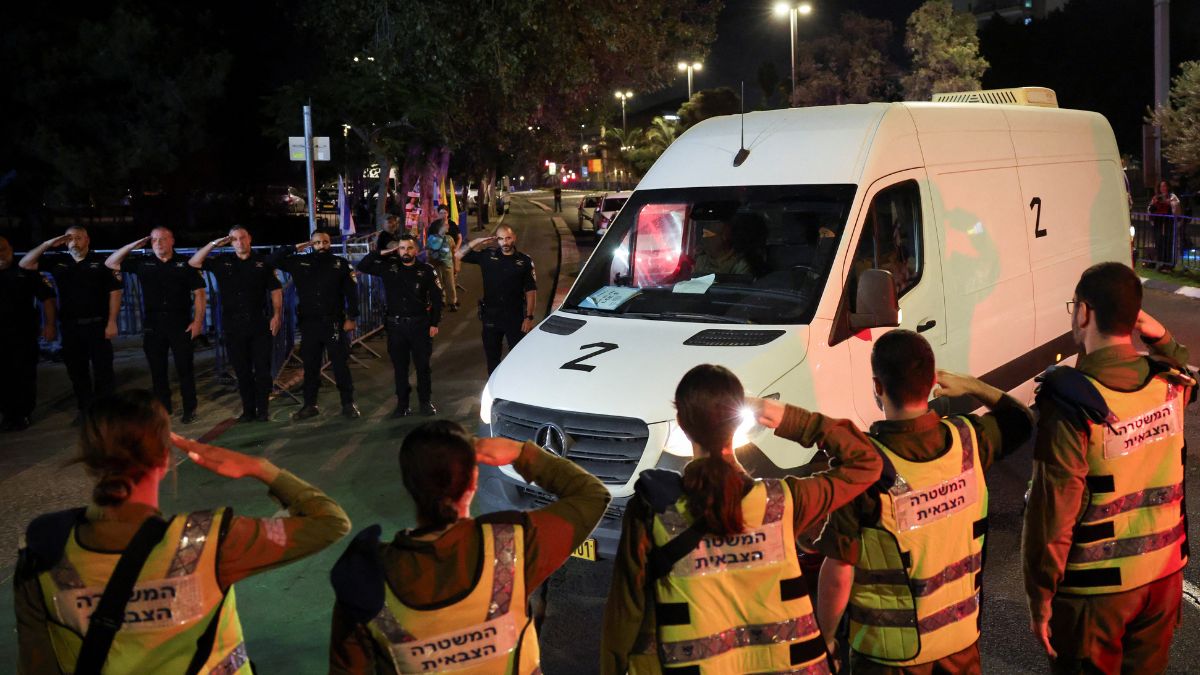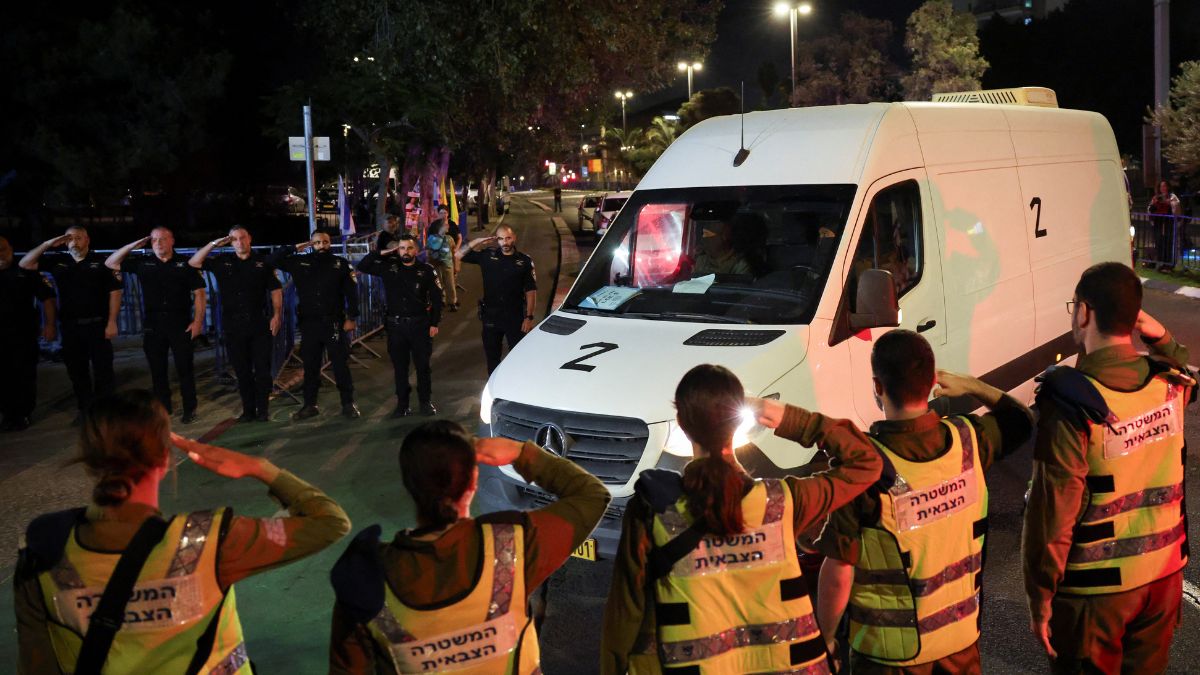Tensions between South Korea and Cambodia have escalated following the exposure of an extensive network of online fraud operations that have ensnared hundreds of South Koreans in Southeast Asia.
What began as isolated reports of missing citizens has evolved into a full-blown diplomatic and humanitarian crisis, prompting Seoul to issue its highest travel warning for parts of Cambodia.
Why has Seoul imposed its most severe travel ban?
On Wednesday, the South Korean government implemented a rare “code-black” travel ban for multiple locations across Cambodia — its most stringent advisory level.
The restriction applies to the border cities of Poipet and Bavet, as well as the Bokor Mountain region in Kampot province, roughly 140 kilometres southwest of Phnom Penh.
These areas have been identified as epicentres of fraudulent job schemes that have entrapped South Koreans and other foreign nationals.
The decision followed a series of alarming incidents, including the murder of a 22-year-old South Korean university student who had travelled to Cambodia during his summer break.
Cambodian investigators later determined that the student died from severe torture, with multiple bruises and injuries found across his body. The case underscored the brutality of the region’s underground fraud industry and triggered intense scrutiny in Seoul.
The Ministry of Foreign Affairs warned citizens that “South Korean nationals visiting or staying in those areas may be subject to penalties under the Passport Act and other relevant regulations. Citizens planning to travel to such areas are therefore strongly advised to cancel their trips.”
Officials said the travel ban is aimed not only at preventing further incidents but also at facilitating rescue and repatriation efforts for those already caught in scam operations.
Impact Shorts
More ShortsWhat do we know of the student’s death?
The crisis gained national attention after the discovery of the 22-year-old student’s body in a pickup truck near Bokor Mountain in early August. Local media reported that he had told his family he was taking a summer job at an expo in Phnom Penh before contact was abruptly lost.
A week later, the student’s parents received a ransom demand for US$38,500, with callers claiming he had “caused trouble.”
They soon lost contact with the kidnappers, and weeks later his body was found. Cambodian police attributed his death to cardiac arrest resulting from torture and extreme pain.
Three Chinese nationals were subsequently charged with murder and online fraud in connection with the case and remain in pre-trial detention.
South Korean authorities sent a team of investigators to Phnom Penh to cooperate with Cambodian law enforcement and to examine the broader web of human trafficking and fraud linked to such incidents.
According to South Korea’s national security adviser Wi Sung-lac, the student’s death was not an isolated event but part of a much larger problem spanning the region.
“It is believed that around 200,000 people of various nationalities are working in Cambodia’s scam industry, which targets victims worldwide, including in South Korea,” Wi said.
He added that approximately 1,000 South Koreans are believed to be among those trapped or employed in the scam sector.
What happened inside the compounds?
Investigations and testimonies from rescued victims have revealed the inner workings of Cambodia’s scam compounds — highly organised criminal hubs where victims are confined and coerced into operating online fraud schemes.
Recruits are often lured with lucrative job offers for administrative or tech-related positions, only to find themselves imprisoned, beaten, and forced to engage in criminal activity.
Victims have described electric shocks, relentless beatings with metal pipes, and starvation used as punishment. “I don’t know if I fainted or just collapsed from lack of strength, but I couldn’t even scream,” one survivor told Yonhap News Agency.
According to another South Korean resident in Cambodia, fatalities are frequent. “It’s not uncommon for people to die from assault. About one person dies every day,” he said, adding that the victims come from many countries, including Vietnam, Indonesia, Malaysia, and China.
Witnesses allege that some individuals who can no longer work are sold to other criminal groups or subjected to organ trafficking.
“If victims go into debt and fail to produce a certain performance, they are forced to sell their organs. They first have their eyeballs removed because corneas are relatively easy to transplant and their unit price is quite expensive,” one said.
Another claimed that those unable to repay debts “were sold to organised crime syndicates and allegedly had their organs removed when they could no longer work or have nothing more to extort financially.”
Amnesty International described the scale of these abuses as “massive,” estimating that at least 53 compounds operate across Cambodia where forced labour, torture, slavery, and other human rights violations occur.
The organisation said such centres are part of a larger transnational crime network stretching across Southeast Asia, including parts of Myanmar, Laos, and the Philippines.
What has Seoul’s response been?
Faced with growing domestic outrage, the South Korean government has mobilised an inter-agency taskforce led by Wi Sung-lac to coordinate rescue and repatriation efforts.
Officials estimate that about 60 South Koreans remain in Cambodian detention following local crackdowns on scam operations, while the whereabouts of at least 80 others remain uncertain.
“We are making efforts to ensure repatriation by this weekend,” Wi said, confirming that charter flights were being arranged to bring home affected nationals.
However, he cautioned that repatriated individuals may face legal scrutiny depending on their degree of involvement. “Returnees will face investigation and judicial measures depending on their level of involvement,” he added.
Second Vice-Foreign Minister Kim Jin-ah has been dispatched to Phnom Penh with senior representatives from the Justice Ministry, the National Police Agency, and intelligence services.
Their mandate includes negotiating the release of detained citizens, strengthening investigative cooperation, and coordinating humanitarian assistance for those rescued.
President Lee Jae-myung addressed the issue during a cabinet meeting, calling it a matter of urgent national concern. “The numbers are not small, and many of our citizens are deeply concerned about their family members, friends and neighbours who have been detained in Cambodia,” he said.
“The government should immediately implement all available measures to ensure the safety of our citizens.”
The South Korean police have also announced plans to expand their investigative presence in Cambodia.
A dedicated “Korean desk” will be established to facilitate communication between the two nations’ law enforcement agencies, with plans for a bilateral meeting in Seoul later in October to discuss cooperation details.
How have lawmakers in Seoul reacted?
The situation has quickly become politically charged in Seoul, with lawmakers across party lines demanding stronger measures. \
Some opposition figures have even suggested a military intervention similar to South Korea’s 2011 “Dawn of the Gulf of Aden” operation, when naval commandos rescued hostages from Somali pirates.
“In the past, our government carried out a full-scale military operation – the ‘Dawn of the Gulf of Aden’ mission – to rescue Korean citizens taken hostage,” said opposition legislator Song Eon-seog.
Ruling party member Lee Eon-ju echoed the sentiment, writing on social media: “We must show the world that anyone who commits crimes or terrorism against Koreans will be punished to the end. If Cambodia responds passively, we should consider self-help measures, including military action, to protect our citizens.”
While military action appears unlikely, such rhetoric reflects the mounting frustration within South Korea as the number of cases rises and reports of severe abuse continue to emerge.
How has Cambodia’s scam industry become a multinational criminal web?
The fraudulent operations in Cambodia are part of a wider Southeast Asian criminal network involving extensive cross-border coordination.
Many of these scams follow a “pig-butchering” model, in which victims are gradually manipulated into investing in fake cryptocurrency or trading platforms before their money is stolen.
Most of the compounds are believed to be controlled by Chinese criminal syndicates, with operations extending into Myanmar, Laos, and even the Philippines.
Despite occasional crackdowns, these organisations continue to thrive due to corruption, porous borders, and the use of sophisticated technology.
A major international development came when the United States announced the seizure of nearly $15 billion in bitcoin and unsealed charges against UK-Cambodian businessman Chen Zhi.
According to the US Department of Justice, Chen’s conglomerate — Prince Holding Group — operated scam centres that used forced labour to carry out global cryptocurrency fraud.
US Attorney General Pam Bondi called it “one of the most significant strikes ever against the global scourge of human trafficking and cyber-enabled financial fraud.”
The US Treasury Department has since classified Prince Holding Group as a transnational criminal organisation.
The DOJ described the case as its largest forfeiture action in history, linking the scam networks to human trafficking, physical abuse, and the confinement of workers in “prison-like conditions.” Chen, who remains at large, faces up to 40 years in prison if convicted.
The global impact of these scams has been enormous. The US Treasury reported a 66 per cent increase in financial losses from such frauds last year, with American individuals and businesses losing more than $10 billion to online investment schemes.
Law enforcement agencies say the money is often laundered through cryptocurrencies and routed through accounts controlled by scam compound operators.
Why are South Koreans among the most targeted?
While scam victims come from across the region, South Koreans have emerged as a particular target for recruiters. Experts say this is largely because scammers require access to legitimate bank accounts in developed economies to move their funds undetected.
A rescued victim told Yonhap News that South Koreans were sought for two main reasons: “One is bank accounts are needed to launder their criminal proceeds. The other is to engage in fraudulent telemarketing, chatting and customer service targeting South Koreans.”
The same victim said that many of those drawn into Cambodia’s border towns — particularly Poipet and Bavet — initially went to “sell their bank accounts” or perform minor work but were subsequently detained and forced into the scam system.
Once inside, escape was nearly impossible due to surveillance, armed guards, and the threat of violence.
Unlike the relatively safer cities of Phnom Penh and Sihanoukville, the border regions have become notorious for housing the most dangerous scam centres, according to residents familiar with the operations.
What next?
Beyond the immediate cases involving South Koreans, the situation exposes a much broader regional crisis involving trafficking victims from across Asia.
Cambodian border towns have become hubs for illegal detention, forced cybercrime, and exploitation of thousands of migrant workers. Human-rights groups have compared the conditions to modern slavery.
Local sources and rights monitors estimate that hundreds of thousands of people — including nationals of Vietnam, Indonesia, Thailand, Malaysia, and China — are trapped in similar conditions across Cambodia and Myanmar.
Many of these victims are coerced into online scams through deception, debt bondage, or outright kidnapping.
Despite sporadic police raids, new compounds continue to emerge, some reportedly using advanced communications technologies such as Elon Musk’s Starlink satellite network to maintain internet access even in remote areas of Myanmar.
While Seoul is focused on returning its nationals home, it also plans to investigate whether some participants willingly engaged in the operations. Wi Sung-lac has said that both “voluntary and involuntary participants” exist among those detained.
“Most of them should be regarded as having committed criminal acts,” he noted, while pointing out the need for case-by-case assessment.
South Korea’s labour ministry is also stepping up domestic preventive measures. Minister Kim Young-hoon has announced meetings with online recruitment platforms to strengthen screening systems and remove fraudulent job listings that have been used to lure citizens overseas.
Cambodian authorities, meanwhile, have pledged cooperation but face growing international scrutiny over corruption and the pace of their enforcement.
Rights groups have urged Phnom Penh to allow independent monitoring of detention centres and to prosecute officials suspected of complicity.
With inputs from agencies


)

)
)
)
)
)
)
)
)



